
Die Ärzte is a German rock band from Berlin. The band has released 14 studio albums. The group consists of guitarist Farin Urlaub, drummer Bela B and bass player Rodrigo González. All three write and perform their songs.
Neue Deutsche Welle is a genre of West German rock music originally derived from post-punk and new wave music with electronic influences. The term was first coined by Dutch radio DJ Frits Ritmeester on the popular nationwide radio station Hilversum 3, which was very popular among German listeners. Soon after that, the term was used in a record-shop advertisement by Burkhardt Seiler in an August 1979 issue of the West German magazine Sounds. It was then used by journalist Alfred Hilsberg in an article about the movement titled Neue Deutsche Welle — Aus grauer Städte Mauern in Sounds in October 1979.

Catharina "Nina" Hagen is a German singer, songwriter, and actress. She is known for her theatrical vocals and rise to prominence during the punk and Neue Deutsche Welle movements in the late 1970s and early 1980s. She is known as "The Godmother of German Punk".

Bernhard Klemens Maria Grzimek was a German zoo director, zoologist, book author, editor, and animal conservationist in postwar West Germany.
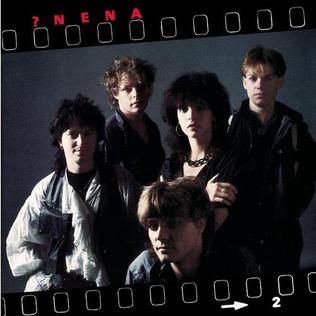
? is the second album by German pop rock band Nena and the third studio album to feature its lead singer, Gabriele "Nena" Kerner. It was released on 27 January 1984, just a few months before the band's first international album 99 Luftballons, which contains songs from their debut album Nena (1983) and this album, some of them re-recorded with English lyrics.

Schlüchtern is a town in the Main-Kinzig district, in Hessen, Germany. It is located on the river Kinzig, approximately 30 km southwest of Fulda. Schlüchtern has a population close to 16,000.

Manfred Alois Segieth, known by his stage name Fancy, is a German singer, songwriter, and record producer.
The Other Ones were a pop rock band which formed in Berlin in 1984. Australian-born siblings Alf Klimek, the twins Jayney Klimek and Johnny Klimek were joined by a German-born trio of Stephan Gottwald (keyboards), Andreas Schwarz-Ruszczynski (guitars) and Uwe Hoffmann (drums). They issued two albums, The Other Ones (1986) and Learning to Walk (1988), before disbanding in 1990. Their second single, "We Are What We Are", peaked in the United States Billboard Hot 100 and reached the top 40 on the New Zealand Singles Chart. Its follow up, "Holiday", peaked at No. 29 in October 1987 on the US Billboard Hot 100, No. 10 in New Zealand, No. 4 in Germany, No. 13 in Austria and No. 22 in Switzerland.

Reinhold Heil is a German musician, producer, and film and television composer. He initially achieved success in Germany as a member of the post-punk and Neue Deutsche Welle groups Nina Hagen Band, Spliff and Nena, and later as a music producer.
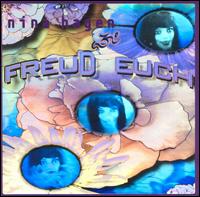
FreuD euch is the seventh solo studio album by Nina Hagen. It was released on November 4, 1995 on Ariola. The record has the punk feel of her first album, with short, caustic guitar-driven tracks. The cover artwork includes three holographic designs amongst holographic flowers, which when tilted from right to left show Hagen spelling something.
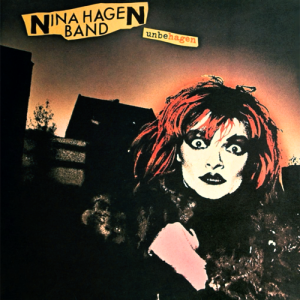
Unbehagen is the second studio album by Nina Hagen Band, released in February 1980 by CBS Records. It is the last album released by the band, before Nina Hagen decided to pursue a solo career. The band kept on performing under the name Spliff.
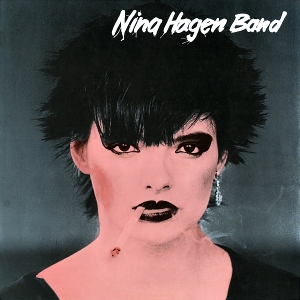
Nina Hagen Band is the debut studio album by Nina Hagen Band. It first was released only in West Berlin in August 1978 by CBS Records. The following month it was released in the rest of Germany. The album first entered the Official Albums Chart in Germany on 20 November 1978. It was the first release by German singer Nina Hagen after her 1976 expatriation from East Germany. When she arrived in Hamburg, her stepfather and singer-songwriter Wolf Biermann got her in touch with CBS. Hagen traveled to London where she was introduced to music genres such as punk and reggae, and befriended other artists including Ari Up of the band The Slits. After she returned to Germany, she met with musicians Herwig Mitteregger, Bernhard Potschka and Manfred Praeker. Joined by Reinhold Heil, they formed the Nina Hagen Band and in November 1977 signed a record deal with CBS. Nina Hagen Band was produced by the band with additional production by Tom Müller and Ralf Nowy. Most of the songs had been already written by Hagen in East Germany.

"TV-Glotzer" is a song by Nina Hagen Band, first released in 1978 by CBS Records and later, on 24 August 1979, released in United Kingdom. The song is a cover of "White Punks on Dope" by The Tubes, with different German lyrics from the perspective of an East German unable to leave her country, who escapes by watching West German television, where "everything is so colourful". Hagen wrote the song before being expatriated from East Germany in 1976, following her stepfather Wolf Biermann. Later, when she formed the Nina Hagen Band in the West Berlin, they recorded the song, and it became the lead single from their debut album Nina Hagen Band (1978).
Spliff was a German band that existed from 1980 to 1985. Their musical repertoire combined rock, funk, and electronic music. The keyboard sounds of Reinhold Heil, and later the electronic drums of the Simmons SDS-V brand, especially defined the sound of their music.

Nena is the first album by German pop rock band Nena and the second studio album of its singer, Gabriele "Nena" Kerner. Released on 14 January 1983, it is part of the music genre called Neue Deutsche Welle in German music.
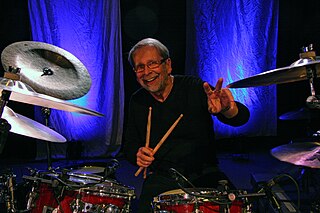
Curtis Cress, known by his stage name Curt Cress, is a German musician, singer and songwriter.

Alex Conti is a German guitarist.

Günther "Jim" Rakete is a German photographer, photojournalist, filmmaker, writer and producer based in Berlin.

Ute Freudenberg is a German rock, schlager and pop music singer. She achieved considerable success in East Germany in the 1970s and early 1980s. And she had a major musical breakthrough in 1980 with the rock band Elefant with the song Jugendliebe, which is one of the "classics of GDR rock and pop history".















